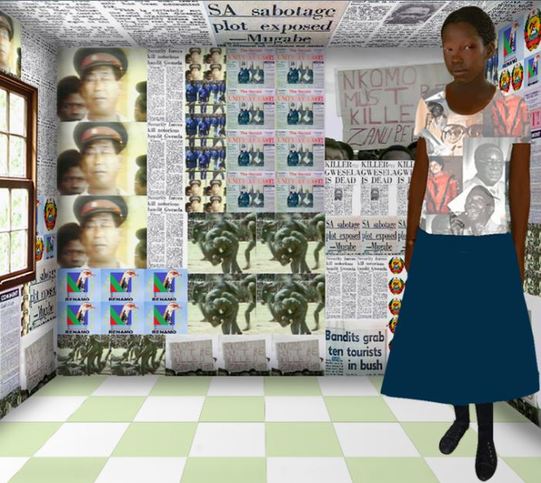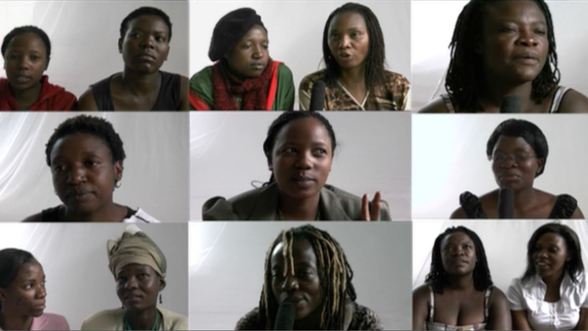Rabia Williams is an art world anomaly. Few artists can genuinely achieve, what to Williams appears to come naturally. Not only does she consistently demonstrate a unique and uniquely personal and a distinctly individual point of view, this individuality is entirely consistent with a passion and a rare capacity for genuine collaboration in making work as well as a rare understanding of what socially engaged practice really can and should be. Moreover she has a natural insight into connection between technology and art, which enables her to span and engage diverse technologies as media for her art. Even more remarkably, rather than exploiting her biography through the conventional and convenient avenues of identity politics, which have become so fashionable in art over the past decade, Williams leverages her diverse family heritage to create fertile new conversations across regions and cultures from American to African from European to Middle Eastern.
I first encountered Williams in 2009, in Zimbabwe, where she was working on Zim.doc the interactive documentary project, where a Williams coordinated the development of multiple documentary projects by a group of emerging women film-makers.
Since that time I have followed her projects, her travels and her ideas, with fascination from Qatar to Israel, from Berlin to Detroit and back to Zimbabwe, she is relentlessly passionate about connecting people through art and technology and being that bridge of connection. Throughout this time, Zim.doc has always been a ceaseless passion – a project, which pushed both her creative boundaries and cultural ones.
In Zim.doc Williams immerses herself in history of a country she first discovered through a Bob Marley song and it is Marley’s idealism, which underpins the compassionate and determined approach she has in this intricate and labour intensive project.
It is fair to say that few people understand what interactive documentaries actually are. It is equally fair to say that few people understand or know anything about Zimbabwe beyond torrid political headlines and the poverty porn paradigm of Africa.
In Zim.doc Williams challenges these and many other presumptions, including the idea of what contemporary women can and should be in plural cultural contexts; complexity of history and the way the future can cast shadows on the present and the past if we let it. Through the project we experience Zimbabwean history through the eyes of the women film makers and through their work, creating a sophisticated yet highly humane matrix of situations, story-telling, symbolism and visualization, which we as the audience are able to engage with voluntarily to create our own journeys through a landscape few have understood before.
Unlike many documentary films and filmmakers, Williams avoids simplification and didactics, empowering her subjects in building their stories and giving agency to her audiences to find their space and point of view, when engaging with the work.
Zim.doc is a project that has developed a life of its own and is an extraordinary work that will inspire many artists in many different media, as well as audiences in any cultural contexts.
I first encountered Williams in 2009, in Zimbabwe, where she was working on Zim.doc the interactive documentary project, where a Williams coordinated the development of multiple documentary projects by a group of emerging women film-makers.
Since that time I have followed her projects, her travels and her ideas, with fascination from Qatar to Israel, from Berlin to Detroit and back to Zimbabwe, she is relentlessly passionate about connecting people through art and technology and being that bridge of connection. Throughout this time, Zim.doc has always been a ceaseless passion – a project, which pushed both her creative boundaries and cultural ones.
In Zim.doc Williams immerses herself in history of a country she first discovered through a Bob Marley song and it is Marley’s idealism, which underpins the compassionate and determined approach she has in this intricate and labour intensive project.
It is fair to say that few people understand what interactive documentaries actually are. It is equally fair to say that few people understand or know anything about Zimbabwe beyond torrid political headlines and the poverty porn paradigm of Africa.
In Zim.doc Williams challenges these and many other presumptions, including the idea of what contemporary women can and should be in plural cultural contexts; complexity of history and the way the future can cast shadows on the present and the past if we let it. Through the project we experience Zimbabwean history through the eyes of the women film makers and through their work, creating a sophisticated yet highly humane matrix of situations, story-telling, symbolism and visualization, which we as the audience are able to engage with voluntarily to create our own journeys through a landscape few have understood before.
Unlike many documentary films and filmmakers, Williams avoids simplification and didactics, empowering her subjects in building their stories and giving agency to her audiences to find their space and point of view, when engaging with the work.
Zim.doc is a project that has developed a life of its own and is an extraordinary work that will inspire many artists in many different media, as well as audiences in any cultural contexts.


 RSS Feed
RSS Feed
